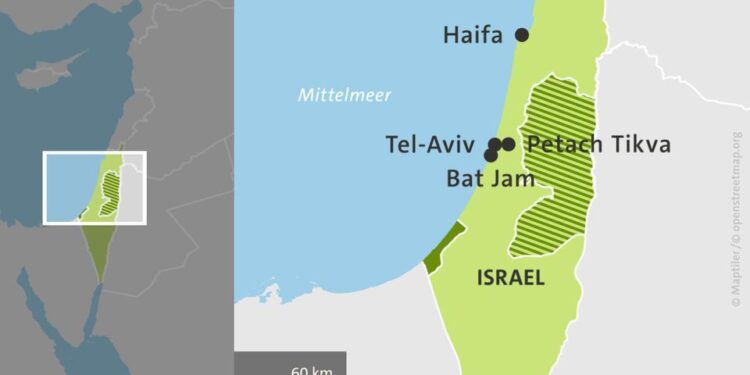Unraveling the Israel-Iran Conflict: Regional Stakes and Global Consequences
As hostilities intensify between Israel and Iran, the Middle East faces an increasingly fragile geopolitical environment. Recent shifts in confrontations have heightened fears over regional security and international fallout. This analysis explores four pivotal dimensions of this evolving crisis—from military alliances to economic repercussions—offering a comprehensive understanding of how these developments affect not only the primary actors but also global interests. The ramifications extend well beyond immediate combat zones, influencing diplomatic relations and economic stability worldwide.
The Roots of Discord: Historical Foundations of the Israel-Iran Rivalry
The deep-seated antagonism between Israel and Iran is anchored in decades of complex historical events that continue to influence present-day tensions. The transformation following Iran’s 1979 Islamic Revolution marked a decisive turn from its previous pro-Western monarchy to an anti-Western regime, fundamentally altering its foreign policy stance. Iranian leadership has consistently challenged Israel’s legitimacy, framing it as an adversary aligned with Western powers.
This animosity was further entrenched during the Iran-Iraq War in the 1980s, which catalyzed regional power struggles and sectarian divides exploited by Tehran through proxy groups such as Hezbollah. These militias have become instrumental in extending Iran’s influence across Lebanon, Syria, and Gaza—areas critical to its strategic contest with Israel.
- Military Developments: Tehran’s progress in ballistic missile technology combined with ambitions for nuclear capabilities pose direct threats to Israeli security calculations.
- Proxy Engagements: Support for militant factions like Hamas intensifies conflict dynamics by challenging Israeli defense policies on multiple fronts.
- U.S.-Iran-Israel Triangle: The United States’ steadfast alliance with Israel contrasts sharply against its adversarial posture toward Iran, reinforcing divisions within this triangular relationship.
- Sectarian Legacies: Historical conflicts over territory and religious dominance continue fueling mistrust among regional actors involved in or affected by this rivalry.
The Broader Middle Eastern Impact: Shifting Alliances and Economic Vulnerabilities
The escalating confrontation reverberates throughout neighboring countries that must carefully navigate their positions amid growing instability. Nations such as Saudi Arabia, Qatar, and the United Arab Emirates are recalibrating their defense postures while balancing diplomatic ties both regionally and internationally. Concerns about border security breaches or refugee surges are prompting governments to enhance surveillance measures along volatile frontiers.
The economic consequences are equally significant; disruptions caused by sanctions or conflict-related trade interruptions threaten fragile economies heavily dependent on energy exports. For instance, oil markets have experienced increased volatility—with Brent crude prices fluctuating above $90 per barrel amid supply uncertainty linked directly to Middle Eastern tensions (as of mid-2024). Such instability risks undermining investor confidence across sectors ranging from infrastructure development to foreign direct investment inflows into Gulf Cooperation Council (GCC) states.
| Economic Dimension | Likely Outcome |
|---|---|
| Global Oil Supply | Sustained price spikes due to potential disruptions at key chokepoints like Strait of Hormuz |
| Bilateral Trade Relations | Deterioration risking collapse of existing agreements among regional partners |
| Foreign Investment Trends | Diminished capital inflows driven by heightened risk perceptions affecting growth prospects |
| Migrant Pressures | An influx straining social services within adjacent countries such as Jordan and Lebanon |
Navigating Diplomacy Amid Heightened Hostilities: Pathways Toward De-escalation
A volatile geopolitical climate demands innovative diplomatic approaches tailored for complexity inherent in Israeli-Iranian relations today. Multilateral platforms—including UN assemblies or specialized Middle East peace forums—offer neutral venues where stakeholders can articulate concerns constructively without immediate threat escalation risks.
A complementary approach involves “track two diplomacy,” wherein unofficial dialogues engage academics, former officials, or civil society leaders who can foster mutual understanding away from formal political pressures—a method proven effective during past conflicts such as Northern Ireland’s peace process analogously fostering breakthroughs outside official channels.
Additionally, discreet backchannel communications enable sensitive negotiations shielded from public scrutiny that might otherwise provoke domestic backlash on either side. Third-party mediators—neutral nations like Switzerland or international bodies such as the International Crisis Group—play indispensable roles facilitating dialogue while proposing creative compromises acceptable across divides.
Consistent messaging emphasizing commitment toward peaceful resolution remains vital throughout all engagement efforts.
Synthesis: Assessing Future Prospects Amid Ongoing Uncertainty
The intensification between Israel and Iran underscores a multifaceted challenge encompassing military strategy recalibrations, shifting alliances within a fractious region prone to proxy wars—and significant economic vulnerabilities exacerbated by global interdependence on energy markets.
For policymakers worldwide monitoring these developments closely is imperative; understanding underlying historical grievances alongside current tactical maneuvers provides essential context for anticipating possible trajectories.
Ultimately sustained dialogue supported by multilateral cooperation offers perhaps our best hope for mitigating conflict escalation while preserving broader regional stability crucial not only for Middle Eastern nations but also global peace architecture.


![Europe Is Calling: San Francisco’s 16 Nonstop Airlines For 2026 [Full List] – Simple Flying](https://capital-cities.info/wp-content/uploads/2026/01/206622-europe-is-calling-san-franciscos-16-nonstop-airlines-for-2026-full-list-simple-flying-360x180.jpg)





![Europe Is Calling: San Francisco’s 16 Nonstop Airlines For 2026 [Full List] – Simple Flying](https://capital-cities.info/wp-content/uploads/2026/01/206622-europe-is-calling-san-franciscos-16-nonstop-airlines-for-2026-full-list-simple-flying-120x86.jpg)





